May, 2024
San Francisco, USA
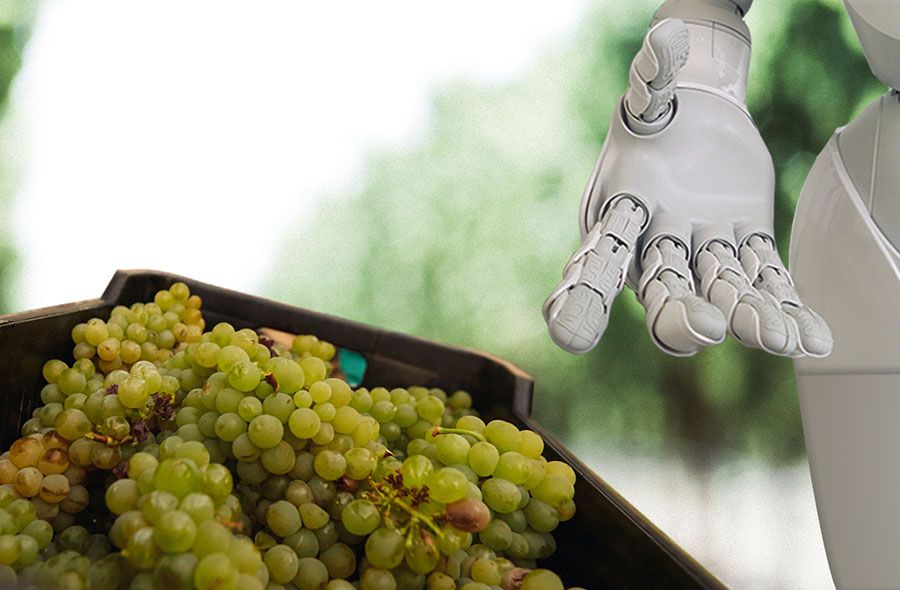
Technological advancements in the wine industry are happening! Numerous tech organizations are working towards yielding a better vine crop and helping the winemaker as well as enabling the customers to make the perfect wine selection with the help of artificial intelligence.
A lot of winemakers are opting for this technology as it provides concrete data about the yield, flavor structure of the resultant wine, and even the potential distribution market to target.
It refers to duplicating human intelligence in machines that can think, learn and solve problems that humans are capable of. New technologies and data sources include satellite, drone imaging, field sensors, automated weather sensors that can predict and offer concrete data to bring innovation to this ancient art of winemaking.
We have listed down some of the companies which offer such services and help to create a better experience for manufacturers and consumers.
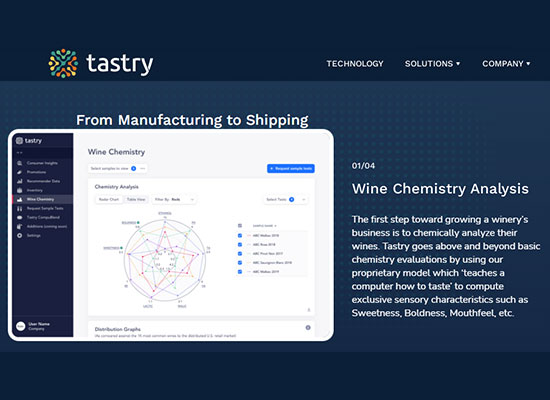
Founder, Katerina Axelsson is a graduate of Cal Poly with a B.S in Chemistry, Source: Tastry
This US startup provides its services to wine manufacturers, distributors, retailers, and even consumers. The AI-based recommendation platform collects information about the customers and their taste profiles through an app and recommends the wine accordingly. This way, the company has created a heat map spread across the US through which distributors and retailers can get an idea about their target clientele. This startup not only discourages buying wines based on the label and marketing portfolios of big brands but also helps people to buy wine based on their taste profile.
On the back end, the manufacturers can get an idea about predicting their sales and targeting specific regions where their wine is matching the taste profiles of the people consuming wine.
The idea for this startup came to Katerina Axelsson when she worked in a winery as a chemist and noticed that wine made from the same pot of grape juice when sold with different labels and at different price points received different scores from critics. She decided to objectify this idiosyncrasy. Thus, she decided to collaborate with Ph.D. students at Cal Poly University and designed an Algorithm to encompass the chemical compounds in the wine and “taught a computer to taste.”
This sector of the wine industry was not explored before as the computational load of such data is very high. This startup is expanding and now is present across USA and Europe.
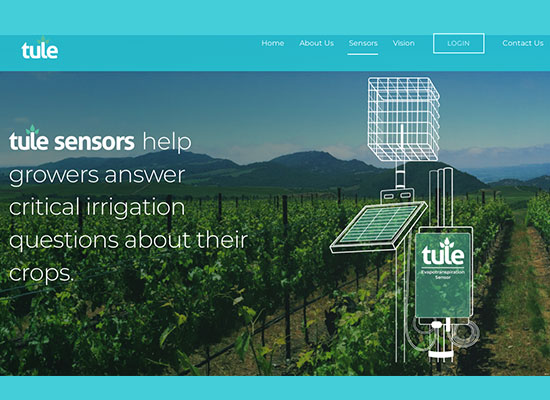
The sensors installed can give real-time information about the water levels and current water stress of vines, Source: Tule
This California-based startup is considered to be a vintner's best friend. It focuses on helping growers make irrigation decisions. Founded in 2014, Tule brings together agronomic prowess and state-of-the-art Artificial Intelligence to help growers take better control of their vines. With the sensor installed in the field, farmers can gather information about the water stress level and actual Evapotranspiration (ETa). Moreover, the Tule Vision offers winegrowers to take midday leaf water potential readings on their mobile phones which helps to understand the vines better. The app showcases the daily water stress in real-time, and alerts before the moisture content of the soil gets depleted. Unreliable weather has made it necessary to take the support of such technologies which provide conclusive data. The irrigation recommendations and monitoring that the sensor provides are extremely beneficial to maintain a steady balance of water between the vines.
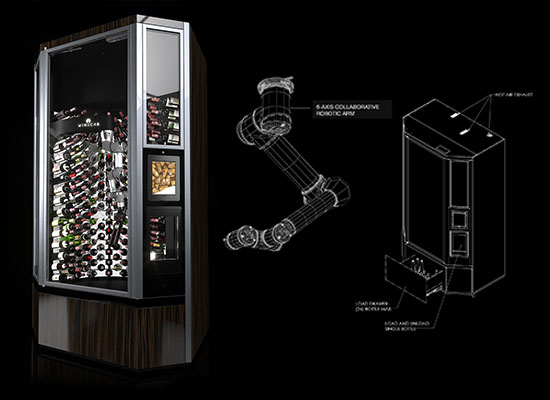
The robotic arm can collect, scan, store and dispense wine and is the first real robotic arm ever installed in a residential setting or restaurant, Source: Wine Cab
An innovative solution for storing, protecting, and showcasing wines with the help of robotics and artificial intelligence. This luxurious system helps to collect wines in a way that has never been done before. Through this wine management system, bottles are scanned robotically and are displayed on the portal accessible via a mobile device. It has a memorized collection of over 600,000 bottles and the “AI Sommelier” helps you pair meals with the wines stored, and give personal wine recommendations. Users can set privacy settings and allow only authorized personnel to access it. Users can customize it exceptionally to integrate seamlessly in any environment.
When the inventory is almost depleted, the AI notifies the user through a notification on their mobile device. The wine club customers can get at-home assistance for wine selection from Virginia Phillip MS and get their wines delivered at the doorstep.
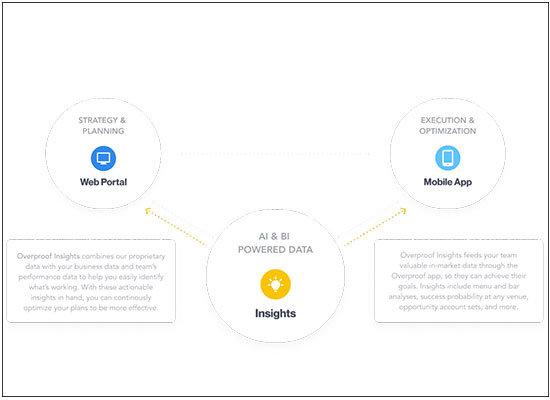
The company strives to mitigate the barriers and work for the economic and social well being of the beverage and hospitality industry, Source: OverProof
This US-based company provides real insights into the alcohol industry. The companys’ portal patches the AI algorithm on sales and user data to approach the planning and execution of relevant sales strategies effectively. It offers solutions at every stage of the process, starting from how to approach the market to on-the-premise solutions. Bars can identify microtrends about their drinks by analyzing Point of sale data and making supply decisions by acknowledging the sales report. Brands can minimize the guesswork and build a strong supply chain looking at the product demand rather than equally distributing their products.
The real-time image recognition and machine learning techniques allow the on-floor team to select strategies and know what is working for the brand.
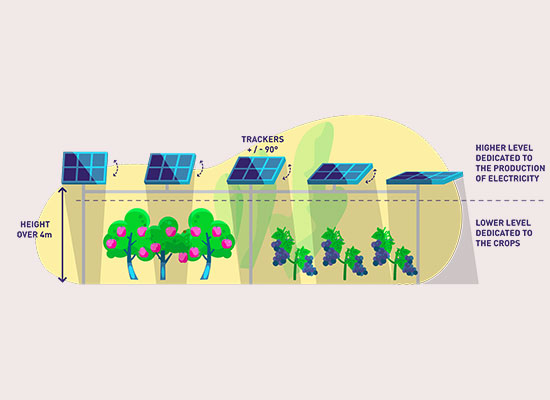
This system can be used by farmers, electricity producers, and even local authorities, Source: SunAgri
This French company, founded by Antoine Nogier has spent 13 years developing such a state of an art sunshine management strategy. Numerous French wine growers have adopted this AI-backed new method in order to safeguard the vines from unpredictable weather. The Dynamic Agrivoltaic system installed over the crops limits the excess solar radiation and extreme temperature that affect the vines and adapts to climate change. The anti-frosts nets protect the fruits from hail. The weather station installed on the top gathers information about the weather and overall condition of plants through AI. The Bifacial panels optimize the solar energy and convert it into electricity which can be used to power the winery. The weather station works in coordination with the trackers on the axis of the panels and tilts them accordingly to provide the necessary sunlight and shade throughout the day.
The findings of this system are compelling as it reduces the water stress, a 40% reduction in evapotranspiration. The resultant grapefruit is low in sugar and 15% more acidic than those produced in control plots. Farmers can use the MySunAgri application to monitor the data collected from the plots. They can also ass the weather data and alerts for irrigation requirements.
This gives better control over the vines and can result in consistent fruit every year.
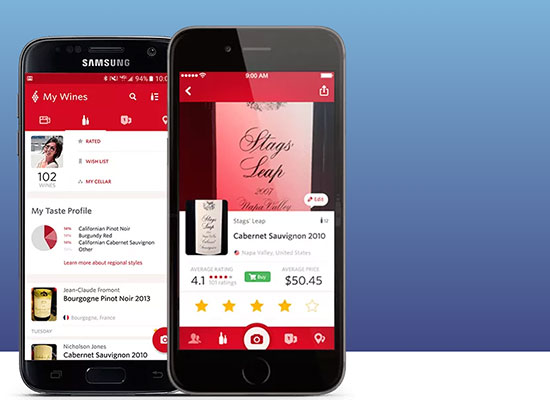
Users can scan wine labels, wine lists and pick the wine based on reviews and taste profile, Source: Vivino
The wine media giant launched an AI-driven app that builds the taste and flavor profile of every individual based on their user history and the wine they have interacted with digitally. Keeping this in the memory, the AI sends a personalized newsletter to its users through email recommending wines with purchase links and suggesting wine that people in their vicinity are opting for.
This app received immense success as emails drove a significant rise in online sales. Holidays drove this momentum and gave the company a boost to increase their marketers.
Article written by Arjun Moghe, Content Writer, Beverage Trade Network